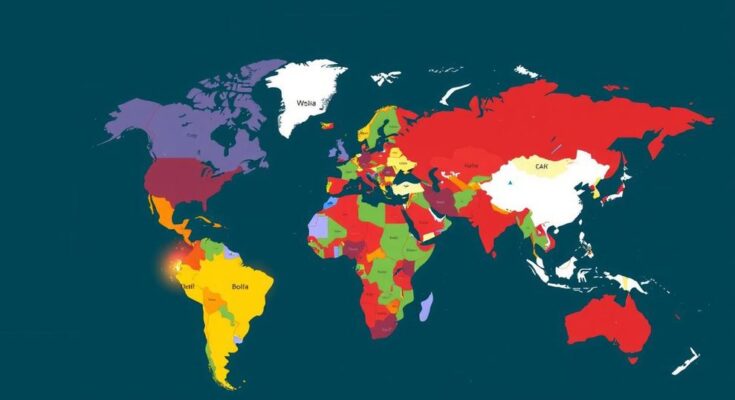Pakistan’s human rights landscape is deeply troubling according to a recent UN review. The report highlights widespread abuses, including politically motivated oppression, torture, and restrictions on religious freedom and expression. Children and women face rampant violence and systemic neglect, while marginalized communities suffer under oppressive laws. The need for comprehensive reform and accountable governance is critical to address these dire human rights violations.
Pakistan finds itself in a precarious state when it comes to human rights. The recent evaluation by the UN Human Rights Committee unveiled alarming trends in human rights violations, highlighting issues like politically motivated oppression, torture, and an alarming decline in religious freedom. The crackdown on free speech, the banning of student unions, and the harassment of activists paint a grim picture of a society stifled by fear and oppression. The legacy of successive governments has led to a climate where state agencies play a crucial role in enforced disappearances, further intensifying a culture of fear. Extremist factions thrive as the state fails to curb their influence. This environment of intimidation coincides with a deteriorating criminal justice system, which sees violence against women spiraling out of control, exemplified by a dismal conviction rate that permits a rape every two minutes. Children in Pakistan face severe human rights abuses, with millions denied basic privileges like education and forced into labor. The state neglects their existence, as indicated by the dismal statistic that only 42 percent of children under five have birth registrations. Meanwhile, religious minorities endure systematic oppression through blasphemy laws and forced conversions, with actual figures of persecution likely far beyond the official count of 74 cases reported. This UN review starkly illustrates that constitutional protections have devolved into mere aspirations. The state’s apathy towards the growing issue of missing persons and its aggressive suppression of dissent, particularly in KP and Balochistan, reveal a troubling trend. Peaceful protests face brutal crackdowns, demonstrating a state willing to silence even the faintest cries for justice. The perception of human rights as a mere privilege rather than an innate right permeates societal institutions, stunting genuine reform. This mindset hampers the formation of policies aimed at social welfare and development, allowing for ongoing exploitation. Rather than fixating solely on economic challenges, the state should embrace a comprehensive approach to human rights, ensuring that accountability and adherence to international standards become paramount.
The situation of human rights in Pakistan has drawn international scrutiny, particularly from bodies like the UN Human Rights Committee. This oversight reflects a growing concern about systemic abuses, which span various aspects of daily life, from personal freedoms to systemic inequalities. The government’s historical negligence and the efficacy of its justice system play crucial roles in perpetuating this cycle of oppression. As various communities continue to endure harsh realities, the need for a strategic overhaul of the human rights framework becomes increasingly urgent.
The summary of human rights in Pakistan is bleak, highlighting that while constitutional rights exist, they are often ignored. Failures in governance have led to widespread abuses ranging from politically motivated actions to violations against women and children. The systemic oppression faced by marginalized communities demands accountability and a drastic change in policy to align with international human rights standards. The state must recognize that genuine progress in human rights cannot be achieved without significant reform and commitment to its citizens’ welfare.
Original Source: www.dawn.com



